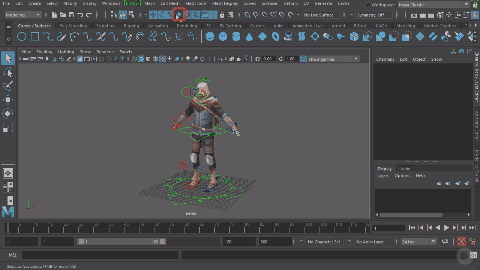The 12 Principles of Animation
Squash and Stretch
Gives a sense of weight; good examples of this maintain the drawn figure's volume throughout the animation.
Anticipation
Used to prepare the audience for an action; draw attention to what is important within the scene.
"the presentation of any idea so that it is completely and unmistakably clear."
Staging
An obvious hierarchy of importance within any given scene; the audience should know what they are about to need to focus on.
Straight Ahead Action and Pose to Pose
Straight Ahead Action; drawing out a scene from the first frame to the last.
Pose to Pose; start by drawing key frames and then filling the 'in-between' content later. Also, works better for emotional scenes.
Follow Through and Overlapping Action
Helps render movement more realistically; character's follow the laws of physics, and have inertia.
'Loosely tied parts of the body should continue moving after the bulk of the body has halted,' and extremities pull back towards the center of mass after movement stops.
Ease in and Ease Out
Obey the principle of Inertia. It takes time for bodies of mass to gain speed, and lose speed; more animation [frames] at the beginning and end of actions.
Arc
Most natural actions follow arced trajectories; rotate extremities around joints
Secondary Action
An example: the swinging of arms while walking. Living things have more than one moving part, so make sure there is more than one movement occurring per body. Do not distract from the main action.
Timing
Referring to the number of frames per a given action; the speed of the actions on film.
Exaggeration
Perfect imitation looks stiff and dull, because it is 2D. Exaggerating movement makes things look and feel more believable.
Solid Drawing
Take into account that 3d space exists within scenes. Characters are acting within 3d space, you are just showing it in a 2d perspective.
Appeal
Speaking frankly, charisma. An evil character's movements should show evilness, imposing postures and meticulous movement, while nice characters should be rounded and bouncy.

Comments
Post a Comment